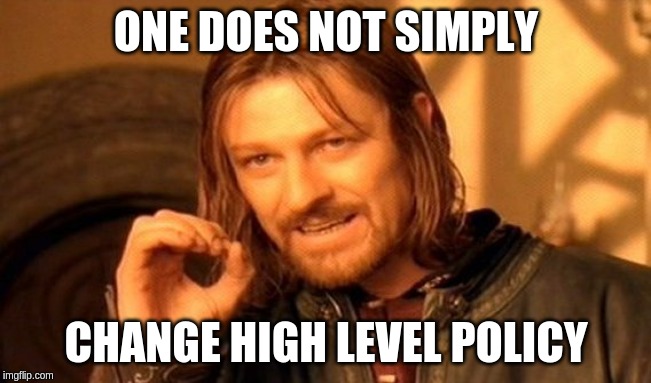-
My impression is that XR fundamentally care less about being liked by the general public than changing high level policy. The argument is that individuals' changes to their lifestyles is insufficient to tackle the crisis, what is needed is systemic change. Years of non-disruptive promotion of lower-emission options have led to limited changes in behaviour (despite excellent breakthroughs in some areas) as people are generally inclined to do the thing that is least hassle. What is required is fundamental structural change to society and the policies that drive it to make it easier for people to do the right thing.
That's also why the "hypocrisy" argument (a la Piers Morgan) is such bullshit. Even if everyone involved in XR completely decarbonised their lifestyle it still wouldn't make a dent in the problem. The fact that they use an iPhone or order a McDonalds while campaigning is simply a reflection that it's very difficult to do the right thing in the system as it's currently set up. Changing the system (through being disruptive) is now much more important than individual lifestyle changes.
-
I think you’re likely correct in your description of what XR is trying to achieve. The thing is, politicians are swayed by the popular mood, and if they think it is an easy vote-winner to dismiss environmental concerns as the stuff of the hard left, then they may well do that - which is what we’ve seen way too much of over in the US. So I’m deeply uneasy with a strategy that could lead to that kind of polarisation - it seems to me that it runs the risk of hindering an all-party consensus on the severity of the issue, which is surely what we need?
-
I absolutely agree with every single thing you say there, especially the 'hypocrisy' thing. BUT:
My impression is that XR fundamentally care less about being liked by the general public than changing high level policy.
Yes but how is this going to actually work? To use a very old meme:

Isn't broad support in the population somewhat of an prerequisite to force politicians to do things that otherwise might not be in their own interests? Considering that, isn't "we're not here to be liked" more of an after-the-fact excuse for not getting the support they'd need to actually change things?
 SwissChap
SwissChap
I agree with your critique - I think a lot of this is perfomative and that their theory of ‘praxis’ is largely self-serving guff to justify making the scenes they want to make.
There’s a place for protest and I think that there’s space for some of their tactics - for example, when they shut down Oxford Street it was an amazing illustration of how we don’t actually need cars going up and down that road, and showed people that it could be a more pleasant environment than it normally is because of a big change. Sure, some people may have been pissed off by it, but I think most pedestrians on the street would have liked the change in the street dynamics - which is a great way to build consensus.
But identifying targets like that, where there’s scope to change minds through praxis, seems to be largely anathema to those involved in the latest round of actions - instead of trying to build consensus, they want to be so big a nuisance that it’s easier to pay to make them go away.
I think they’re vastly underestimating the costs the public will incur if the mood is against the movement, though. As you said, rationality can go out the window when it’s a point of principle. Just look at Brexit!